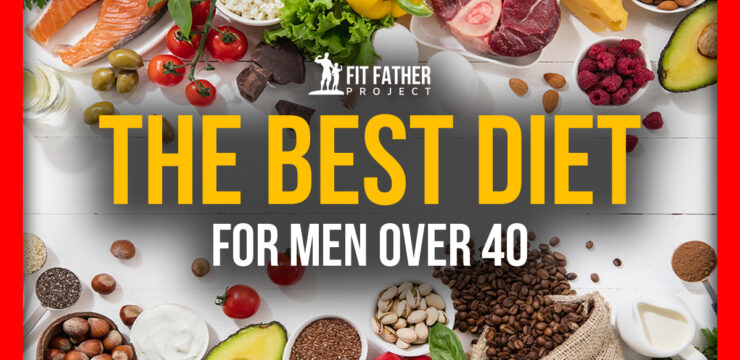Reaching middle age is a natural and meaningful phase of life.
It’s a time when many people start paying closer attention to their health, realizing that small daily choices can make a big difference in how they feel and function.
Nutrition plays a central role during these years, helping to maintain energy, support a healthy weight, and protect against conditions that become more common with age.
While there is no one-size-fits-all diet, there are practical and friendly nutrition habits that can make a lasting impact. One of the most important things to remember in middle age is that metabolism naturally slows down. This means the body doesn’t burn calories as quickly as it did in earlier years. To adjust, it’s helpful to focus on foods that deliver more nutrients per bite without adding unnecessary calories. Whole fruits, vegetables, lean proteins, and whole grains fit this goal beautifully. These foods are rich in vitamins, minerals, and fiber that keep you full and energized while supporting digestion and heart health. Protein deserves special attention in middle adulthood. As people age, they tend to lose muscle mass if they do not consume enough protein or stay active. Including lean protein sources such as fish, poultry, tofu, eggs, beans, and low-fat dairy helps maintain muscle strength and supports metabolism. A balanced approach—having some protein at every meal—can also help regulate appetite and blood sugar levels. Fiber is another quiet hero in the nutrition story of middle age. It supports digestive health, helps manage cholesterol, and contributes to a feeling of fullness. Foods like oats, brown rice, lentils, apples, and leafy greens are great ways to add more fiber to your day. Many people find that simply switching from refined grains to whole grains makes a noticeable difference in energy and satisfaction after meals. Hydration is often overlooked, yet it becomes even more important with age. Water supports every system in the body, from digestion to brain function. Sometimes, people confuse thirst with hunger, leading them to snack unnecessarily. Keeping a reusable water bottle nearby and sipping regularly can help maintain hydration levels. Herbal teas and water-rich foods like cucumbers, melons, and oranges also contribute to your daily fluid intake. Calcium and vitamin D are essential nutrients for maintaining bone strength. As bone density tends to decline in middle age, it is wise to include calcium-rich foods such as yogurt, milk, cheese, and fortified plant-based alternatives. Vitamin D, which helps the body absorb calcium, can be obtained from sunlight exposure and foods like fatty fish or fortified cereals. If sunlight exposure is limited, a healthcare professional can advise whether a supplement might be needed. Healthy fats are another key to balanced nutrition. Rather than avoiding all fats, it’s better to focus on quality. Sources like avocados, olive oil, nuts, and seeds contain unsaturated fats that benefit heart health and support brain function. These fats can replace saturated fats found in processed snacks or fried foods. A small handful of nuts or a drizzle of olive oil over vegetables can enhance flavor and nutrition in simple, enjoyable ways. Middle age can also bring changes in how the body responds to certain foods. Some people notice that they digest dairy or spicy foods differently, or that large meals make them feel sluggish. Paying attention to how foods make you feel helps tailor your diet to your body’s current needs. Smaller, more frequent meals can help maintain steady energy levels throughout the day. Another helpful practice is being mindful during meals. It’s easy to eat quickly or while distracted, especially with busy schedules. Taking time to enjoy the taste, texture, and aroma of food encourages slower eating, which aids digestion and helps prevent overeating. This mindful approach turns meals into moments of nourishment and calm rather than rushed necessities. Reducing added sugars is also a wise choice in middle age. Sugary beverages, pastries, and sweets can contribute to unwanted weight gain and affect blood sugar balance. Choosing naturally sweet foods, such as fruit, satisfies cravings in a healthier way. If you enjoy sweetened drinks, try gradually reducing the sugar content or exploring unsweetened versions of your favorites. Sodium, or salt, is another nutrient to watch closely. Too much sodium can raise blood pressure, a concern that becomes more common with age. Cooking at home allows better control over salt intake, and seasoning with herbs, garlic, lemon, or spices can make meals flavorful without relying on salt. Reading food labels is also helpful, as many packaged foods contain hidden sodium. For those who enjoy coffee or tea, moderation is key. Caffeine can provide a pleasant energy boost, but too much may interfere with sleep or hydration. Enjoying one or two cups earlier in the day and balancing them with water is usually a good approach. Good sleep, after all, is closely tied to good nutrition, as tiredness can lead to unhealthy cravings. It’s also important to recognize that middle age is not about restriction but balance. Food is not only about nutrients; it’s also about pleasure, culture, and connection. Sharing meals with family or friends, trying new recipes, or cooking together adds joy to the process of healthy eating. These social moments can make nutritious choices more sustainable and rewarding. Meal planning can make a big difference in maintaining healthy habits. Setting aside time each week to prepare simple, balanced meals helps reduce the temptation of fast food or processed snacks. Keeping healthy options like pre-cut vegetables, nuts, or yogurt readily available makes it easier to choose nourishing foods even on busy days. If there’s one guiding principle for middle-aged nutrition, it’s to aim for variety. Eating a wide range of foods provides a broad mix of nutrients that support overall health. Brightly colored fruits and vegetables, diverse protein sources, and different grains keep meals interesting and nutritious. Variety also helps protect against nutrient deficiencies and keeps your palate excited about healthy eating. Finally, remember that progress matters more than perfection. Healthy eating is a lifelong journey, not a short-term goal. Even small changes—like drinking more water, adding an extra serving of vegetables, or cutting back on sugary drinks—can lead to lasting benefits. Listening to your body, staying active, and choosing foods that nourish rather than restrict can make middle age a vibrant, fulfilling time of life. Middle age offers a chance to renew your relationship with food, focusing on nourishment, balance, and enjoyment. With a few thoughtful adjustments and a positive mindset, nutrition can become a strong ally in supporting energy, vitality, and long-term well-being. Every meal is an opportunity to care for yourself—one that brings both comfort and strength for the years ahead.






